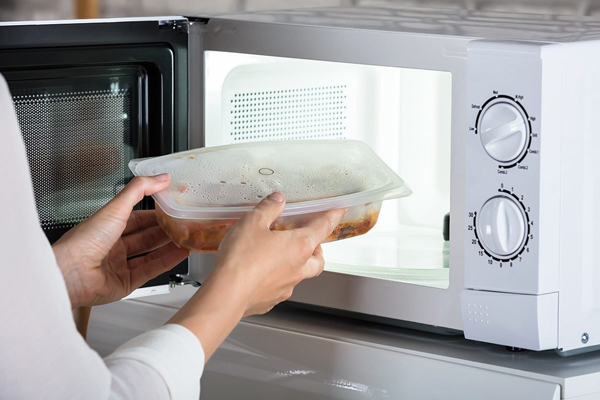Leftovers that could make you sick

Last night’s dinner can be a lifeline when you need a hot and ready lunch, but you may want to think twice before reheating these foods.
What you need to know:
Last night’s dinner can be a lifeline when you need a hot and ready lunch, but you may want to think twice before reheating these foods.
Because we are often busy, it is very difficult to find time to make a fresh meal every time we need it. Therefore, the temptation to run to the fridge for leftovers is very high. However, while this may come in handy, think twice before reheating some of these foods.
Irish potatoes
Isaac Kabazzi, a nutritionist, says when irish potatoes stay at room temperature for too long, they develop harmful bacteria referred to as Clostridium Botulinum that causes botulism, a severe form of food poisoning. “This is aggravated in foil wrapped baked Irish potatoes because the environment therein (low oxygen), allows the bacteria to thrive. A little microwaving, say for a minute, will not kill the bacteria,” says Kabazzi. However, he adds, if options for cooking fresh potatoes are limited, microwaving for at least five minutes is effective against Clostridium Botulinum.
Eggs
Just like it is not good to eat raw eggs, Justin Mwema, a nutritionist, says it is also not ideal to eat left over eggs. “Most contain salmonella yet eggs need gentle heat to heat up which takes a short while, not long enough to kill the bacteria. Therefore, leaving them at room temperature only allows for the bacteria to multiply,” he says.
He adds that it is also not advisable to leave eggs or dishes containing eggs out of the refrigerator for more than two hours or an hour during hot weather. However, if your scrambled eggs just cooled as you were preparing the bread, there is no wrong in putting them in the microwave to heat them up.
Mushroom
These have proteins that can get damaged by bacteria and enzymes when poorly stored, say when left at room temperature for so long. As such, Kabazzi says, eating or reheating them will definitely cause a stomach upset.
Chicken
Just like eggs, Kabazzi says, raw chicken tends to have Salmonella, yet time coupled with room temperature are conducive for bacteria multiplication.
“While reheating chicken is not necessarily impossible, the tricky part is in ensuring that every part of the chicken, more so the inside reaches 133 degrees. That is quite impossible when warming. If you must keep cooked chicken, make sure it is kept at a temperature below 10 degrees to prevent bacterial growth. Even then, do not reheat it more than thrice,” he says.
Rice
Food poisoning in the 1970s owing to leftover rice helped people become more aware of the Bacillus Cereus bacteria which rice harbours and multiplies at room temperature. Mwema says it does not mean rice cannot be kept, but it is important to consider how you store it as well as the temperature at which you reheat it at. “The temperature for storing should be 15 degrees and below while reheating ought to ensure all the rice is heated up at no less than 100 degrees,” he adds.
Spinach
This vegetable contains nitric oxide, which will give you an energy boost and normalise your blood pressure. However, when subjected to heat, Kabazzi says, these compounds will be converted to nitrites. “Then when reheated, nitrites will get converted into nitrosamines, some of which are carcinogenic (having the potential to cause cancer). As such, it is better that spinach is served raw. However, since raw food is also known to cause food infections, it is vital to wash raw vegetables with clean water (no soap) to remove germs,” Kabazzi warns.
Caution
● As a rule of thumb, Kabazzi says there is need to ensure food safety through:
●Preparing food in moderation to minimise leftovers.
●Properly storing food in covered containers in a cold environment such as a refrigerator, and not for extended periods.
●Ensuring good household hygiene.





